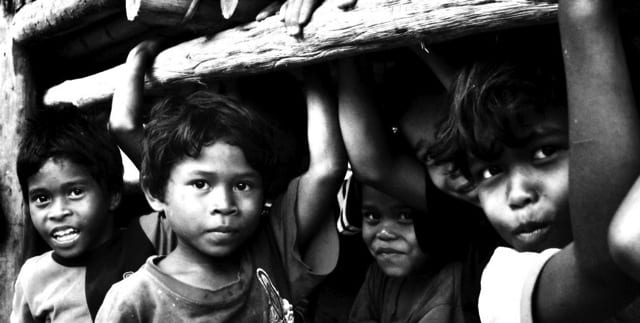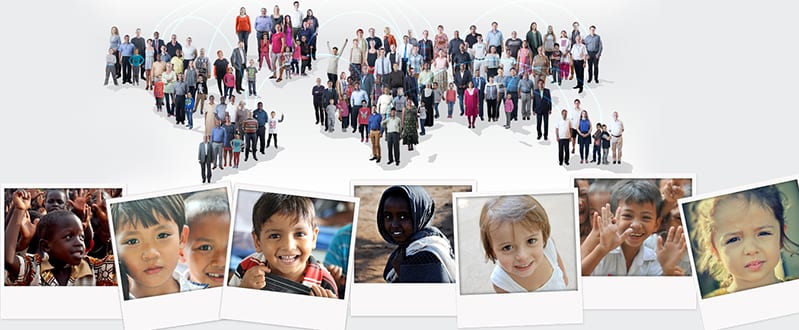Human Rights under attack
2016 has been a tough year for Human Rights. A resurgence of hate crimes, racism, xenophobia and a powerful backlash against equal rights for all has swept countries across the West. Around the world, Human Rights have come under heightened pressure in 2016. We are witnessing a disturbing trend: the adoption of repressive new laws and policies targeting civil society and our constituencies. Authorities in countries around the world are seeking respectable-sounding reasons to limit Human Rights; to infringe on free speech; to shy away from protecting minorities and promoting health; and to stifle citizenship.
2016 has been a gloomy year. Extremism. Hatred. Violence. Separatism. Selfishness. Ruthlessness in the pursuit of political power. Corporate greed is harming the most vulnerable. Therefore, in my opinion, Human Rights Day has never been more important.
Many of us are fearful about the way the world is heading. Messages of intolerance and hatred prey on our fears. But we can change the course by reaffirming our common humanity and taking action to support everyone’s human rights,” writes the UN campaign on Human Rights Day.
Stand up for someone’s Human Rights
In the face of all this, it is easy to start feeling cynical. In the gloom of these developments, we begin to feel overwhelmed and ask with desperation: what can I do?
Where does hope come from?
For me, hope and inspiration come from an old Native American parable:
An old Cherokee chief was teaching his grandson about life…
‘A fight is going on inside me,’ he said to the boy. ‘It is a terrible fight and it is between two wolves. One is evil – he is anger, envy, sorrow, regret, greed, arrogance, self-pity, guilt, resentment, inferiority, lies, false pride, superiority, self-doubt, and ego.
‘The other is good – he is joy, peace, love, hope, serenity, humility, kindness, benevolence, empathy, generosity, truth, compassion, and faith.
‘This same fight is going on inside you and inside every other person, too.’
The grandson thought about it for a minute and then asked his grandfather, ‘Which wolf will win?’
The old chief simply replied, ‘The one you feed.”
Protecting and promoting Human Rights starts with me, and you. It starts with how I view myself and relate to the world; with how I navigate every day and the people I meet; it starts with standing up for someone else’s rights. It starts with honing the qualities the Cherokees encouraged to “feed”. Therefore, for me, it starts with standing up for children gravely affected by society’s ignorance and lack of political will to promote their best interests.
Pervasive, but forgotten Human Rights abuses worldwide
Children of the world bear a heavy burden and suffer disproportionately from injustice, violence and dysfunctional systems. I think that children whose parents have alcohol problems are one such group where the extent and graveness of how exposed kids are to Human Rights abuses really becomes obvious.
Children of alcoholics are the forgotten victims of adults’ failure to protect and promote children’s best interests. All too often they do remain invisible and alone: neglected by their parents, overlooked by teachers, down prioritized and ignored by governments and authorities.
But data shows that children of alcoholics (CoAs) do constitute a significant group.
- In Australia ca. 1 million children live in homes with at least one addicted adult.
- In the United States, mothers convicted of child abuse are 3 times more likely to be alcoholics and fathers are 10 times more likely to be alcoholics. More than half of all confirmed abuse reports and 75% of child deaths involve the use of alcohol or other drugs by a parent.
- In the European Union, there are at least 9 million children and young people growing up with alcohol-addicted parents.
- Research estimates that there are 2.6 million children of school age living with parental alcohol problems in the UK alone.
- The number of children living in homes that are ravaged by alcohol problems sky-rockets considering the countries around the world that are currently not even measuring the issue.
Children growing up with parents who struggle with alcohol problems are a Human Rights crisis of tremendous proportions.

Multiplying and perpetuating poverty, ill health, despair
The evidence shows that children of alcoholics are greatly exposed to various types of harm:
- They are five times more likely to develop an eating disorder.
- They are three times more likely to commit suicide.
- They are almost four times more likely to develop an alcohol use disorder themselves later on in life.
- In Low- and Middle-Income Countries, children of alcoholics often end up on the streets, where they are often exposed to grave dangers such as violence and crime, human trafficking and exploitation, and substance use.
A massive Human Rights crisis
When we talk about children of alcoholics, we face seven aspects that make up the severity of the Human Rights crisis:
- The societal stigma, stereotypes and associated taboo that still are attached to alcoholism and to living with parents who have alcohol problems.
- Authorities’ inability to identify children of alcoholics, for example in schools.
- Governments on local and national level fail in providing effective and sufficient services to these vulnerable and marginalized children.
- Governments on local and national level fail in providing treatment for parents with alcohol problems, like programs that help the entire family.
- Society’s inability to prevent and reduce alcohol harm in general.
- In general, the lack of enabling, safe environments for children to grow up and thrive in.
- Government shortcomings in implementing the Best interest principle enshrined in Art. 3 of the Convention on the Rights of the Child (CRC).
Also these aspects are interdependent. Their absence from the debate and from effective policy-making processes is hurting children of alcoholics.
In fact, they keep fuelling a Human Rights crisis that sees CoAs deprived of the enjoyment of eight Human Rights, such as (detailed here):
- Protection of the family (Art. 16.3)
- The right to social security and realization of economic, social and cultural rights (Art. 22),
- The right to a standard of living conducive to health and well-being (Art. 25.1),
- Special care and assistance for motherhood and childhood (Art. 25.2).
Standing up for the most vulnerable
Having on mind the sheer extent of the problem, the severity of the problem and the impact of the problem not just on the present but on the future, I believe we must understand that Sustainable Development and the achievement of the Agenda2030 are not possible without comprehensive efforts to help and support children of alcoholics and to ensure that their number decreases in the coming years.
The fact that hundreds of millions of children grow up exposed to neglect and abuse due to their parents’ alcohol problems is a Child Rights issue, a public health issue, a social development issue, a poverty eradication and sustainable development issue. It is a Human Rights crisis.
In short, this is a complex and an urgent issue. Sometimes, especially in low- and middle-income countries it is a matter of life and death.
In this spirit, I stand up for – and encourage you, too – to convince our politicians to put the situation of children of alcoholics on their agenda. It’s not a crazy idea because the Best Interest Principle, enshrined in Art. 3 of the Convention on the Rights of the Child can be used to protect and promote the well being of children of alcoholics.
I think that helping and protecting children of alcoholics can bring about structural change to how society views the best interest of children and how we come together in promoting environments that allow all children to thrive. If we can ensure that no child, no matter how marginalized and vulnerable, is left behind, we as global community stand a chance of building a better world with Human Rights for all.

